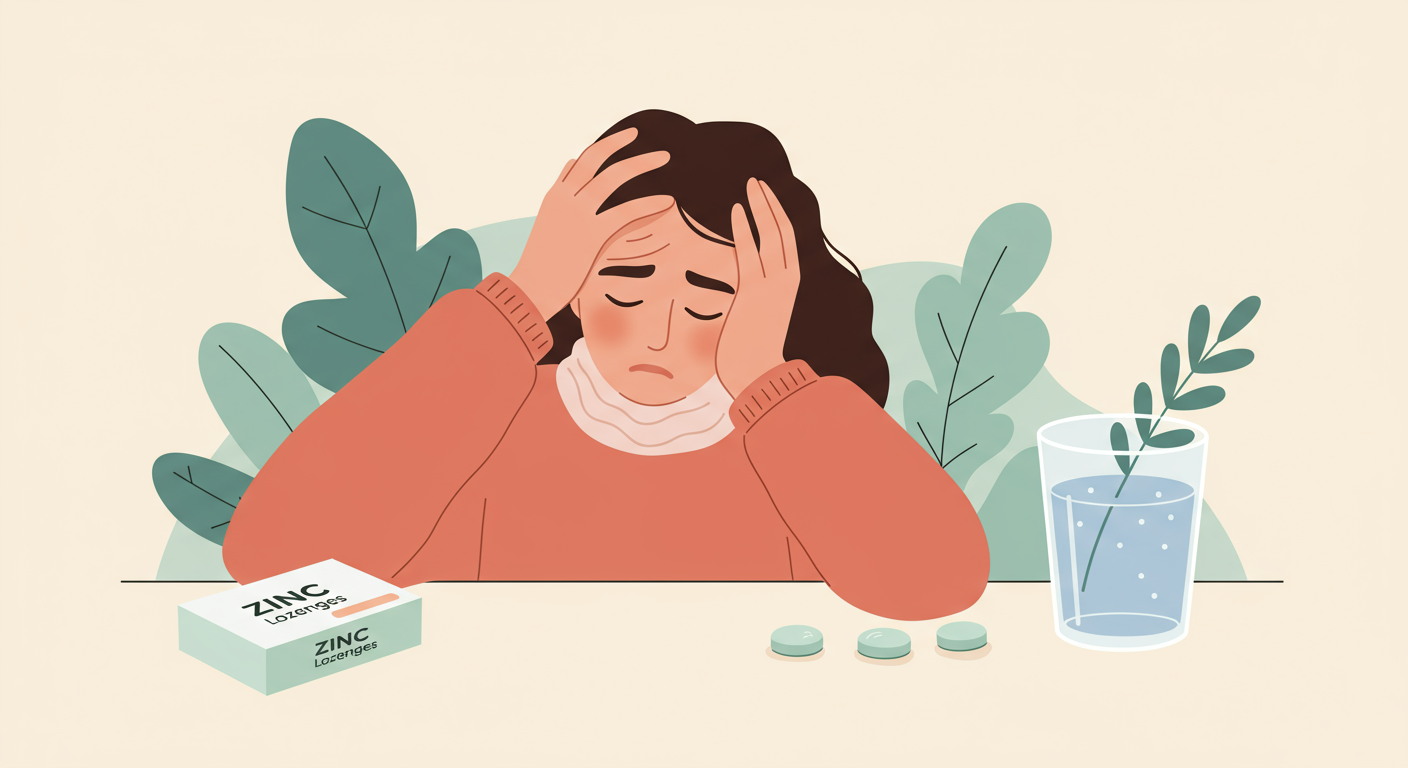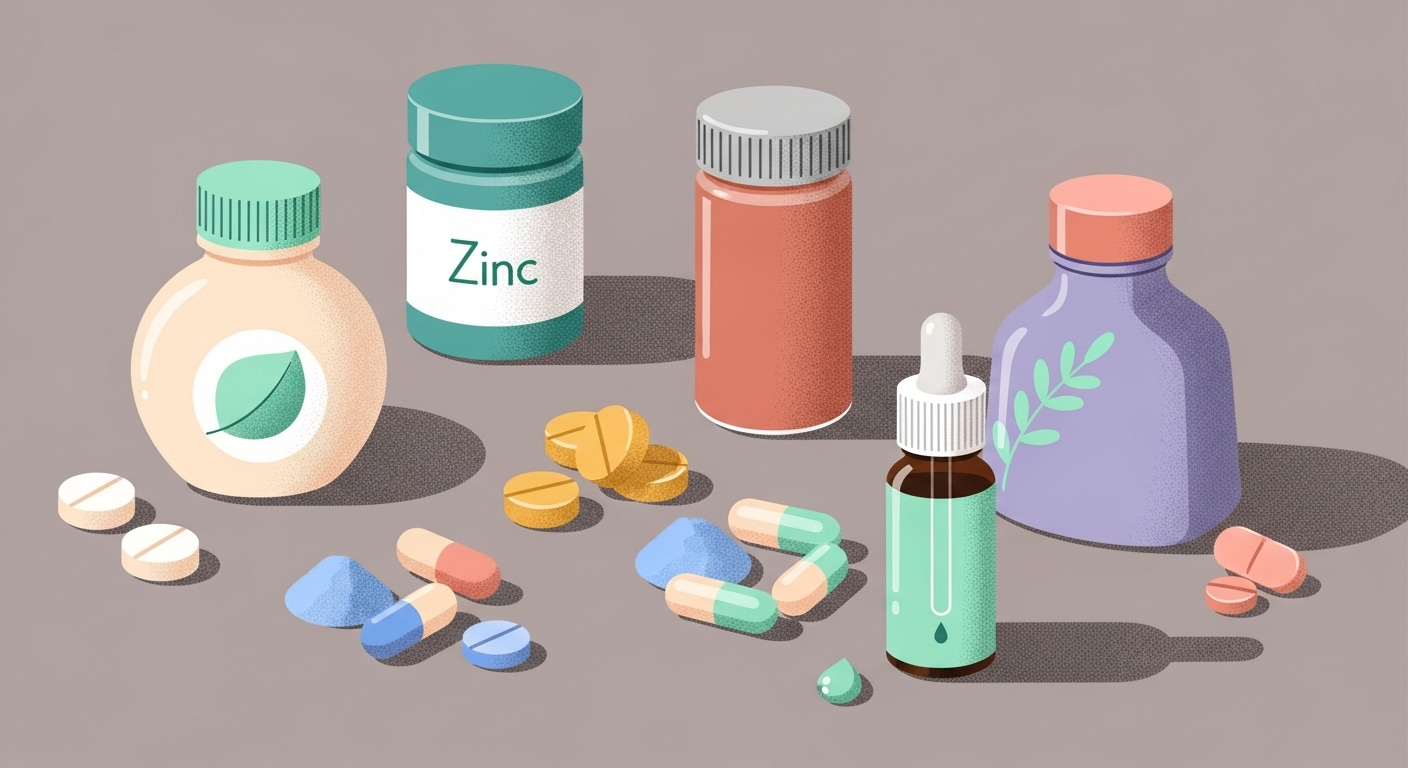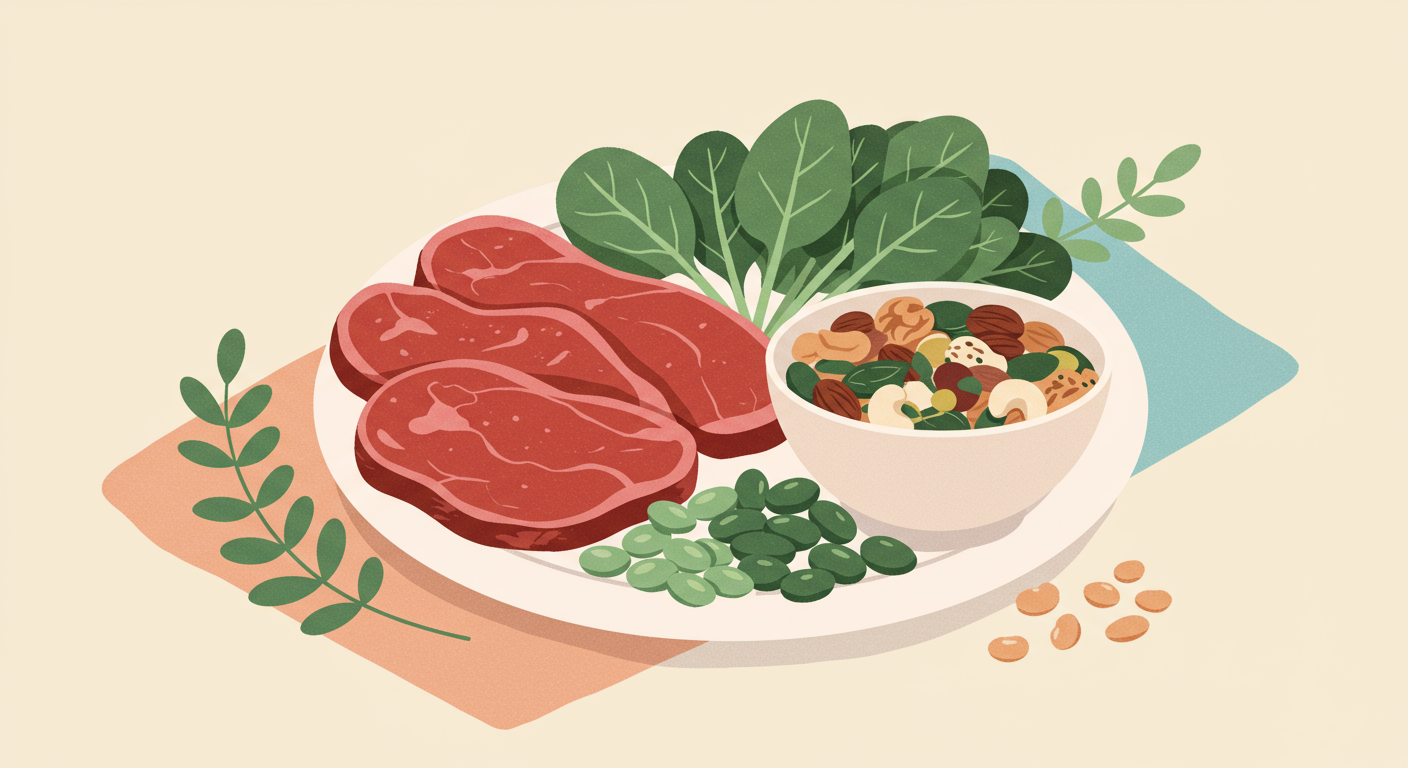Zinc Truths: Debunking Common Myths About This Essential Mineral
Zinc Truths: Debunking Common Myths About This Essential Mineral

Zinc is an indispensable trace mineral that plays a vital role in countless bodily functions, from bolstering our immune system to aiding in wound healing and DNA synthesis. However, its widespread recognition has also led to a proliferation of misconceptions and myths about what it can and cannot do. This article aims to cut through the noise, presenting evidence-based facts to debunk some of the most common zinc myths. We'll explore whether zinc is a magical cold cure, if more is always better, whether all supplements are equal, if its role is limited solely to immunity, and if dietary intake is insufficient. By the end, you'll have a clearer, more accurate understanding of this essential nutrient and how to incorporate it safely and effectively into your health regimen.
One of the most enduring myths about zinc is its perceived ability to instantly cure the common cold. While zinc does play a significant role in immune function, the idea that it can make a cold disappear overnight is an oversimplification of the science.
Zinc and the Common Cold: What the Science Says
Research suggests that zinc, particularly when taken in lozenge or syrup form shortly after the onset of cold symptoms, may help shorten the duration and reduce the severity of the common cold. This effect is thought to occur because zinc ions can interfere with the replication of rhinovirus, the primary cause of the common cold, in the nasal passages and throat. Studies, including a meta-analysis published in the Cochrane Database of Systematic Reviews, have indicated that daily zinc supplementation initiated within 24 hours of symptom onset can reduce cold duration by about a day in some individuals. However, it's crucial to understand that 'shorten the duration' is not the same as 'cure'. Zinc does not eliminate the virus immediately, nor does it prevent a cold from occurring if taken too late. The benefits are typically modest and most pronounced when initiated very early in the illness.
Timing and Form are Key
The effectiveness of zinc for cold symptoms appears to be highly dependent on the timing and the form of zinc used. For zinc to be most beneficial, it needs to be taken within the first 24 hours of symptoms appearing. Furthermore, lozenge or syrup forms, which allow zinc ions to come into direct contact with the throat and nasal tissues, seem to be more effective than oral supplements that are quickly absorbed into the bloodstream. Even with optimal timing and form, zinc is not a guaranteed fix for everyone, and individual responses can vary. It's an aid, not a cure-all.

There's a common misconception that if a little of something is good for you, more must be even better. This is definitely not the case with zinc. While it's essential for health, taking excessive amounts of zinc can lead to adverse effects and even serious health complications.
Understanding Zinc Toxicity
The recommended dietary allowance (RDA) for adult men is 11 mg per day, and for adult women, it's 8 mg per day. The tolerable upper intake level (UL) for zinc, which is the maximum daily intake unlikely to cause adverse health effects, is set at 40 mg for adults. Consuming zinc above this limit, especially over extended periods, can lead to a range of issues. Short-term side effects of high zinc intake often include nausea, vomiting, loss of appetite, stomach cramps, diarrhea, and headaches. These symptoms are typically a warning sign that your body is receiving too much.
The Critical Balance with Copper
One of the most significant long-term risks of excessive zinc intake is copper deficiency. Zinc and copper compete for absorption in the small intestine. When zinc levels are consistently too high, it can interfere with copper absorption, leading to a copper deficiency. Copper is another vital trace mineral involved in energy production, iron metabolism, connective tissue formation, and nerve function. A copper deficiency can result in neurological problems, weakened immunity, and anemia. Therefore, maintaining a careful balance between zinc and copper intake is crucial. Always consult with a healthcare professional before taking high doses of any supplement, including zinc, to ensure it's appropriate for your individual needs.
Daily Recommended Intake (RDA) for Adults:
For most healthy adults, the Recommended Dietary Allowance (RDA) for zinc is 11 mg per day for men and 8 mg per day for women. The Tolerable Upper Intake Level (UL) is 40 mg per day. Always check supplement labels and consult a healthcare provider for personalized advice.
When it comes to zinc supplements, the market offers a dizzying array of options. It's a common misconception that all zinc supplements provide the same benefits or are absorbed equally by the body. In reality, the form of zinc makes a considerable difference.
Navigating Supplement Forms
Zinc supplements come in various forms, each with different chemical structures and varying levels of bioavailability, which refers to how efficiently the body can absorb and utilize a nutrient. Common forms you might encounter include zinc gluconate, zinc acetate, zinc picolinate, zinc citrate, and zinc sulfate. Zinc gluconate and zinc acetate are often found in cold lozenges and oral supplements. Zinc picolinate is another popular form, believed by some studies to have higher absorption rates compared to other forms, though research on this is not entirely conclusive. Zinc citrate is also generally well-absorbed and tolerated. On the other hand, zinc sulfate, while effective, is sometimes associated with more gastrointestinal side effects like nausea.
Bioavailability Matters
The bioavailability of a zinc supplement is influenced by the compound it's bound to. For instance, chelated forms of zinc, where zinc is bound to amino acids (like zinc bisglycinate or zinc picolinate), are often marketed for their enhanced absorption, as the amino acid can help ferry the zinc across the intestinal wall more effectively. However, the exact differences in efficacy and absorption among all forms are still an active area of research. What's most important is choosing a reputable brand and, if you have concerns about absorption or specific health conditions, discussing the best form with your healthcare provider. They can help determine which type is most suitable for your needs and minimize potential side effects.

While zinc is famously known for its role in supporting the immune system, limiting its importance to just this function would be a disservice to this versatile mineral. Zinc is, in fact, integral to hundreds of enzymatic reactions and plays a broad spectrum of roles throughout the body.
Beyond Immunity: Zinc's Diverse Functions
Beyond its well-publicized immune-boosting capabilities, zinc is critical for numerous physiological processes. It is essential for proper cell division and growth, making it vital for children's development and during pregnancy. Zinc is also indispensable for wound healing, as it's involved in collagen synthesis and inflammatory response. Our senses of taste and smell rely heavily on adequate zinc levels; a deficiency can lead to altered perception or loss of these senses. Furthermore, zinc is involved in DNA synthesis, protein synthesis, and gene expression. It also plays a role in thyroid hormone metabolism, insulin function, and even vision. Its pervasive involvement highlights that zinc is not a single-purpose nutrient but a fundamental component of overall health, impacting nearly every system in the body. Understanding this broader scope can help us appreciate its importance beyond just preventing colds.
Another common belief is that it's nearly impossible to get enough zinc from diet alone, necessitating supplementation. While certain populations might be at higher risk for deficiency, many individuals can meet their daily zinc requirements through careful dietary choices.
Rich Dietary Sources of Zinc
Nature provides an abundance of foods rich in zinc. Oysters are exceptionally high in zinc, making them a powerhouse for this mineral. Red meat (like beef and lamb) and poultry are also excellent sources. For those following a vegetarian or vegan diet, there are plenty of plant-based options, though plant-based zinc can sometimes be less bioavailable due to phytates that inhibit absorption. Good plant sources include beans (chickpeas, lentils), nuts (cashews, almonds), seeds (pumpkin seeds, sesame seeds), whole grains (oats, quinoa), and fortified breakfast cereals. Dairy products like milk and cheese also contain zinc. Incorporating a variety of these foods into your daily meals can significantly contribute to meeting your zinc needs.
Who Might Need a Supplement?
While a balanced diet can often supply sufficient zinc, certain groups may still be at risk of deficiency and might benefit from supplementation. These include vegetarians and vegans, due to the aforementioned phytates and sometimes lower overall intake; individuals with gastrointestinal disorders (e.g., Crohn's disease, celiac disease) that impair nutrient absorption; pregnant and lactating women who have increased needs; chronic alcoholics; and those with certain genetic conditions. Older adults may also sometimes have reduced absorption. For the general healthy population, focusing on a diverse, nutrient-rich diet is usually the best first step. Supplements should be considered after consulting with a healthcare professional to assess individual needs and avoid potential overconsumption.

Yes, it is possible to get enough zinc from a vegetarian diet, though it requires conscious effort. Plant-based sources include legumes (beans, lentils, chickpeas), nuts (cashews, almonds), seeds (pumpkin, sesame), whole grains, and fortified cereals. However, phytates in plant foods can inhibit zinc absorption, so vegetarians may need up to 50% more zinc than omnivores. Soaking, sprouting, and fermenting legumes and grains can help reduce phytate levels and improve absorption.
Signs of zinc deficiency can be diverse and sometimes subtle. They may include impaired immune function (frequent infections), slow wound healing, hair loss, loss of appetite, changes in taste or smell, skin lesions, and delayed growth in children. Severe deficiencies are rare in developed countries but can occur in at-risk populations. If you suspect a deficiency, it's best to consult a healthcare professional for proper diagnosis and guidance.
Yes, zinc can interact with certain medications. For example, some antibiotics (quinolones and tetracyclines) can have reduced absorption when taken with zinc, so it's often recommended to take them at different times. Diuretics and certain chelating agents can also affect zinc levels. Always inform your doctor or pharmacist about all supplements you are taking, including zinc, to avoid potential interactions.
Taking zinc every day at or below the Recommended Dietary Allowance (RDA) (11 mg for adult men, 8 mg for adult women) or within the Tolerable Upper Intake Level (UL) of 40 mg for adults is generally considered safe for most healthy individuals. However, long-term use of high-dose zinc supplements (above the UL) can lead to side effects such as copper deficiency, immune suppression, and gastrointestinal issues. It's always advisable to consult with a healthcare provider to determine if daily supplementation is necessary and at what dosage.
Understanding zinc's true capabilities and limitations is key to harnessing its benefits safely and effectively. By separating fact from fiction, we can make more informed choices about our health and supplement use. Here are the key takeaways from our myth-busting journey:
Key Takeaways
- Zinc is Not a Cold Cure: While zinc, particularly in lozenge or syrup form, may help shorten the duration and reduce the severity of common cold symptoms if taken very early, it is not a cure and doesn't work for everyone.
- More Zinc is Not Always Better: Excessive zinc intake (above the 40 mg UL for adults) can lead to adverse effects, including nausea, vomiting, and a crucial copper deficiency, which can have serious health consequences.
- Not All Zinc Supplements Are Equal: Different forms of zinc (e.g., gluconate, picolinate, citrate) have varying bioavailability and may cause different side effects. Choosing a reputable form and consulting a healthcare provider is wise.
- Zinc Has Many Roles Beyond Immunity: Beyond immune support, zinc is vital for cell growth, DNA synthesis, wound healing, taste and smell, and various enzymatic functions throughout the body.
- Dietary Zinc is Often Sufficient: Many people can meet their daily zinc needs through a balanced diet rich in foods like oysters, red meat, poultry, beans, nuts, and whole grains. Supplementation should be considered after assessing individual needs and ideally with professional guidance, especially for at-risk groups.